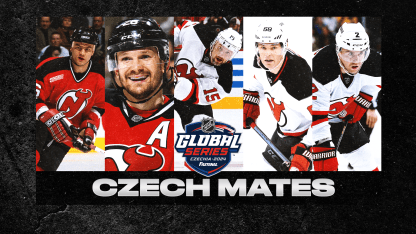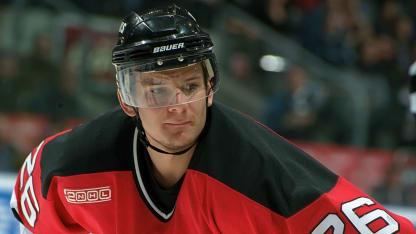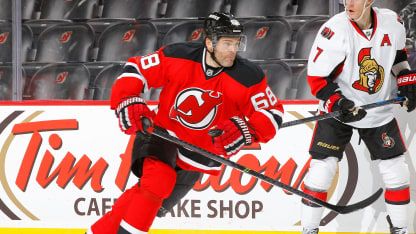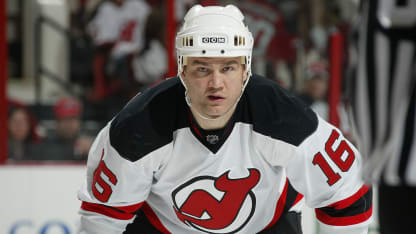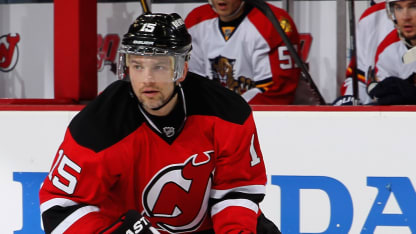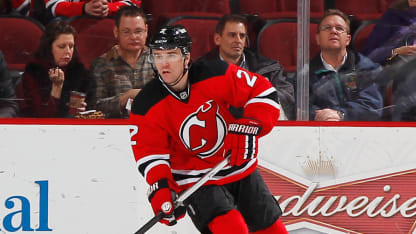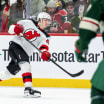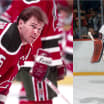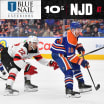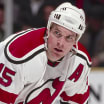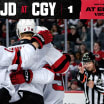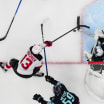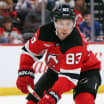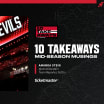The NHL announced that the Devils will open the 2024-25 season in Prague, Czechia as part of the Global Series against the Buffalo Sabres. With that said, we asked Stan Fischler to chart the five best Czech players in Devils history. Enjoy.
Before getting into my selections, it's important for me to explain that The Maven has a special interest in Czech hockey, having viewed it first-hand before any other American journalist.
This was in September 1961 and I was on the first non-stop flight from New York to Prague flown by Air India. (I was accompanied by 14 other non-sports reporters. After landing, we were escorted by assorted Czech guides, according to our needs. My special need was hockey).
Since I had been writing hockey professionally since 1954, my guide took me to see a preseason game at the city's venerable arena on an isle situated - like New York City's Roosevelt Island - between two sides of Prague.
"Don't worry about the way the hockey arena looks," my guide noted, "it's old but we're building a brand new one to open soon."
And just to show he wasn't kidding, the guide pulled out an 8x10 glossy photo of the almost completed ice palace. "Impressive, isn't it?" he added; and The Maven nodded approval.
Having been a reporter in every one of the six National Hockey League arenas at the time, I assured my guide that "old" doesn't bother me.
There it was - the old rink and, for a few seconds, I thought I was looking at the Detroit Red Wings' original home, Olympia Stadium. No question, this was a big-league arena but, really, I was more interested in watching the game.
Until that point in time - 63 years ago - I had absolutely no idea about the quality of European hockey and specifically the Czech brand. (And, I must admit, I expected it to be of significantly lower quality than what we were then seeing in North America.)
WOW! Was I ever amazed. I might just as well have been watching an NHL game except that the goalies weren't wearing masks and not every player wore a helmet.
As it happened, I was seated in the press box, next to the Czech radio play-by-play man who went as wild as any of our broadcasters when a goal was scored.
All in all, it was quite a revelation; the Czechs are into hockey, big-time and know their pucks.
My second trip in 1965 was somewhat different. I had told Rangers president Bill Jennings that I would be going to Czechoslovakia and he told me that the Blueshirts had their eyes on a top young player, Vaclav Nedomansky. "If you see him," said Jennings, "ask if he'd like to play in the NHL."
Nedomansky was playing in Bratislava, Slovakia and I did get to meet him. This was in August, before the hockey season started but his team was playing soccer as a tune up for the season. "This is our Bobby Hull," my guide said, introducing me to "Big Ned."
With the help of an interpreter, we chatted a bit and when I brought up coming to America, Big Ned smiled and made it clear that this was not the time to think about such a move. (But in the twilight of his career, Nedomansky played for Detroit, the Rangers and Blues).
In Prague I met with a few of the top Czech hockey officials and gave them some hockey magazines and we became pals for life. All things considered, my double-dip trips convinced me that the Czechs and Slovaks are as hockey mad as we are in the States.
I should add that the one Devil with whom I've become a lifetime friend is none other than
Czech-born Bobby Holik. A few years ago, we hung out together when he visited Israel and - soon after that - he coached the Israeli National Men's team to a Gold Medal at a tourney in Mexico City.
Now that you know of my past interest in Czech hockey, here's my list of the Five Best Czech's In Devils history.

